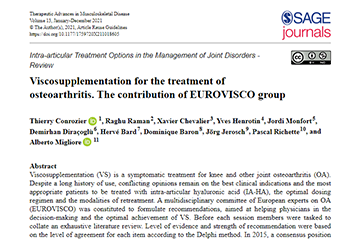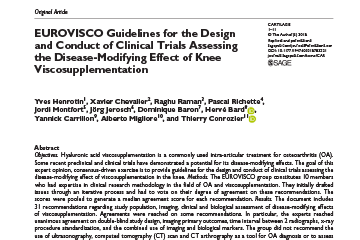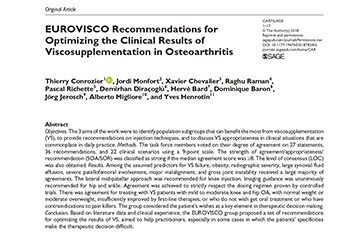Steroids, lidocaine and ioxaglic acid modify the viscosity of hyaluronic acid: in vitro study and clinical implications. T. Conrozier; J. Patarin; P. Mathieu; M. Rinaudo. SpringerPlus . 2016 Feb 24;5:170; doi: 10.1186/s40064-016-1762-z.
During viscosupplementation, it is usual to inject other drugs, without knowing whether this association may have a deleterious effect thereon. The rheological properties of a viscosupplement are highly dependent on the product [molecular weight × concentration] of HA. Therefore, any reduction of its viscoelastic properties is related either to a decrease of its concentration or/and of its molecular weight. The presence of other molecules can create favourable or unfavourable molecular interactions with HA.
The objective of the study was to investigate the effect of products, that are commonly associated with HA (corticosteroids, lidocain, iodinated contrast media), on the rheological behaviour of HA, to try drawing practical conclusions.
CONCLUSION:
HA viscosity varies widely in presence of other molecules.
These changes are due to both dilution and molecular interactions.
This study suggests that addition of other molecules with HA can lead to a major decrease of its viscosity. However, provided to respect a maximum ratio of 1:1, the contrast medium and triamcinolone seem to have no major deleterious effect on the viscosity level, especially on crosslinked HA.
The study also suggests a deleterious effect of lidocain on the cross-linked HA.
These in vitro data suggest that drugs associations must be avoided when they are not essential.
However, clinical trials are needed to determine whether these rheological changes may have a significant impact on the clinical outcome.
Read Full Text




